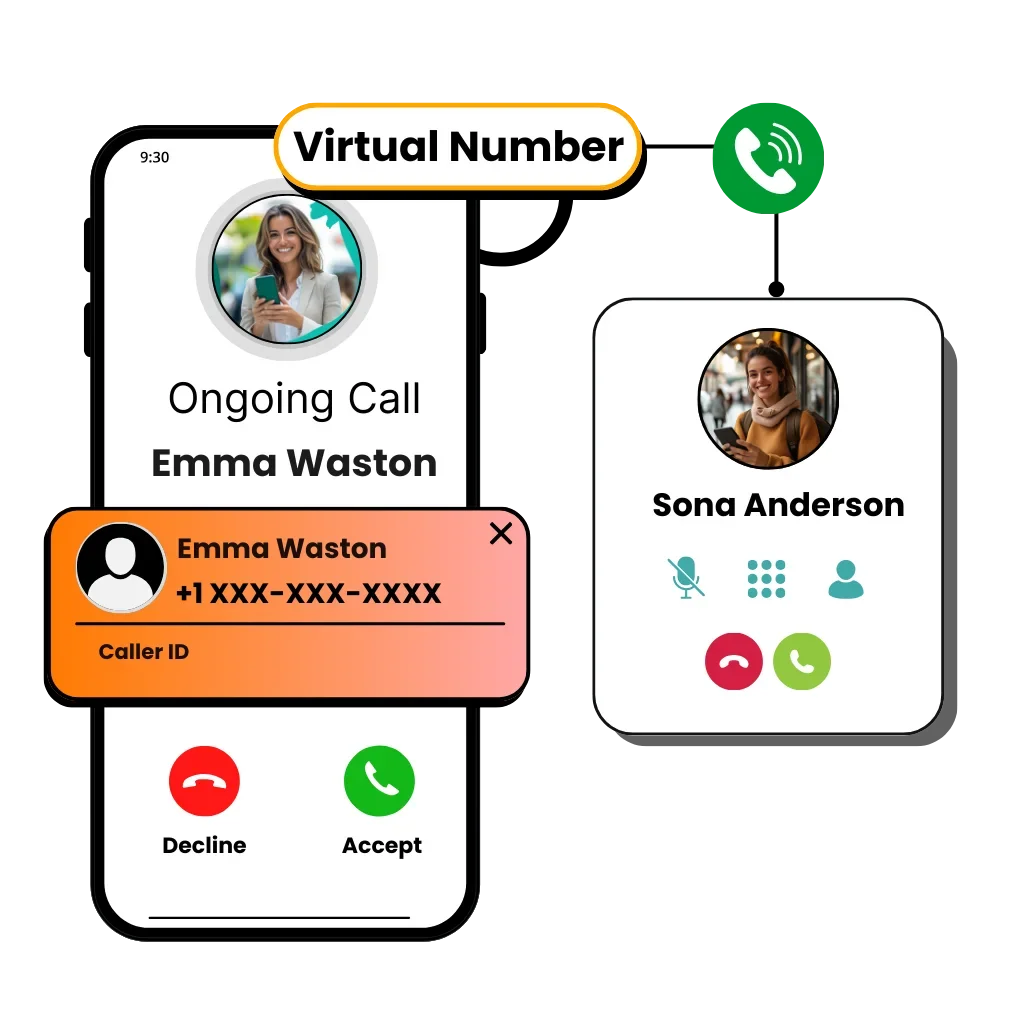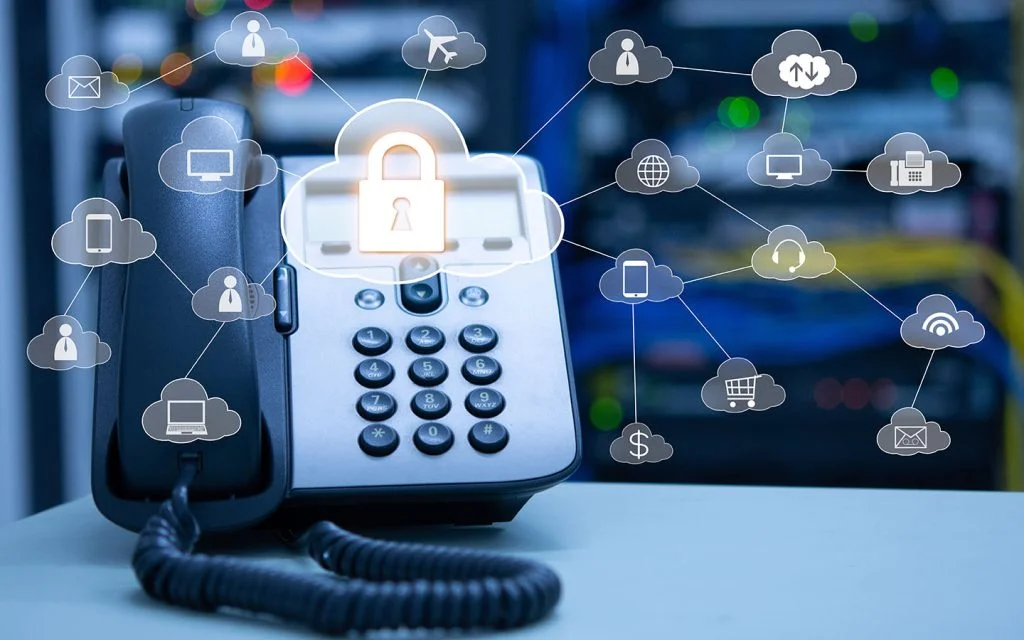
Virtual numbers have become essential tools for privacy and business communication, but like any technology, they can be misused by people with malicious intentions. While legitimate virtual number services provide valuable privacy protection and communication flexibility, scammers have found ways to exploit these same features for fraudulent activities.
Understanding how these scams work and recognizing the warning signs can help you protect yourself while still enjoying the benefits of legitimate virtual number services. The key is learning to distinguish between trustworthy providers and suspicious activities that should raise red flags.
Common Virtual Number Scam Tactics
Phone verification scams represent one of the most widespread misuses of virtual numbers. Scammers create accounts on various platforms using virtual numbers, then use these accounts to contact potential victims. Since the virtual number isn't tied to their real identity, they can abandon it if their activities are discovered and simply get another one.
These verification scams often target people selling items online. A fake buyer contacts you about an expensive item you've listed, claims to be very interested, but says they need to "verify your phone number" before proceeding with the purchase. They might ask you to provide a verification code that gets sent to your phone, which they then use to take over your accounts on other platforms.
Romance scams have also evolved to incorporate virtual numbers. Scammers create fake dating profiles and use virtual numbers to seem more legitimate when they ask to move conversations off the dating platform. The virtual number gives them a way to communicate that feels more personal than messaging apps, but it's still completely disconnected from their real identity.

Business impersonation represents another growing concern. Scammers obtain virtual numbers with area codes that match legitimate businesses, then call potential victims claiming to represent banks, government agencies, or well-known companies. The local area code makes the call seem more credible, and victims are more likely to answer and engage with the caller.
Investment and cryptocurrency scams increasingly use virtual numbers to create an appearance of legitimacy. Scammers set up fake investment companies with professional-looking websites and virtual numbers that forward to call centers in different countries. When potential victims call to inquire about investment opportunities, they reach convincing sales teams that don't actually exist in the locations the phone numbers suggest.
Red Flags to Watch For
Pressure tactics should always make you suspicious, regardless of how the person contacted you. Legitimate businesses don't typically create artificial urgency around phone verification, account setup, or investment opportunities. If someone pushes you to act quickly or claims a special offer will expire soon, step back and verify their identity through independent channels.
Requests for personal information during unsolicited calls represent major warning signs. Real companies you have relationships with already have your basic information and won't call asking for Social Security numbers, bank account details, or login credentials. If someone calls claiming to represent your bank and asks for account information, hang up and call your bank directly using the number on your statements or cards.
Geographic inconsistencies can reveal scams involving virtual numbers. If someone claims to represent a local business but uses language patterns, accents, or references that don't match your area, investigate further. Scammers often use virtual numbers to appear local while operating from completely different regions or countries.
Payment method requests provide another clear indicator of potential fraud. Legitimate businesses accept standard payment methods and don't insist on specific payment apps, cryptocurrency, or gift cards. If someone with a virtual number asks you to pay using unusual methods or claims these are the only options available, consider it a significant red flag.
Technical issues during calls can sometimes indicate virtual number misuse. While legitimate virtual number services generally provide clear connections, scammers using cheap or unreliable services might have poor call quality, unexpected delays, or calls that drop frequently.
Protecting Yourself from Virtual Number Fraud
Never share verification codes with anyone who contacts you unexpectedly, regardless of how legitimate they seem. Verification codes are meant for you alone, and sharing them can give scammers access to your accounts on various platforms. If someone claims they need a verification code to complete a transaction or verify your identity, it's almost certainly a scam.
Verify independently whenever someone contacts you claiming to represent a business or organization. Don't use contact information they provide – instead, look up the company's official phone number from their website, your account statements, or reliable directories. Call the official number to confirm whether they actually tried to contact you.
Research unfamiliar phone numbers before engaging in detailed conversations or sharing any information. Simple internet searches can often reveal whether a number has been associated with scam reports. Several websites track phone numbers used in fraudulent activities, and checking these resources takes just a few minutes.
Trust your instincts when something feels wrong about a phone conversation. Scammers are often skilled at manipulation, but most people have good intuitive sense about when they're being deceived. If a conversation makes you uncomfortable or seems too good to be true, end the call and investigate further before taking any action.
Keep your personal information private during initial conversations with unknown callers. Legitimate businesses have ways to verify your identity without asking for sensitive information over the phone. Don't provide Social Security numbers, bank account details, passwords, or other personal data to unsolicited callers, even if they claim to need it for verification purposes.
Choosing Legitimate Virtual Number Services
Reputable virtual number providers prioritize user safety and have clear policies about preventing misuse of their services. They typically require some form of identity verification, maintain detailed terms of service that prohibit fraudulent activities, and provide clear contact information for customer support.

Transparent pricing structures indicate legitimate services. Trustworthy providers clearly explain their costs, billing cycles, and any additional fees. They don't hide charges in fine print or use confusing pricing models that make it difficult to understand what you're paying for.
Customer support availability distinguishes professional services from questionable operations. Legitimate virtual number providers offer multiple ways to contact support and respond promptly to customer inquiries. They also provide clear documentation about how their services work and what features are included.
Security features like two-factor authentication, encryption, and privacy protections demonstrate that a provider takes user safety seriously. Services like BODE IM, which offers virtual numbers from over 197 countries while maintaining transparent policies and innovative accessibility features, represent the industry standard for combining functionality with user protection.
User reviews and industry reputation provide valuable insights into a provider's legitimacy. Established services have track records that can be researched, while fly-by-night operations often lack substantial user feedback or have patterns of complaints about fraudulent activities.
What to Do If You Encounter Scams
Document everything if you suspect you've encountered a virtual number scam. Save phone numbers, record times and dates of calls, and take screenshots of any text messages or emails related to the suspicious contact. This information can be valuable for reporting the incident and helping others avoid similar scams.
Report suspected scams to appropriate authorities. In the United States, the Federal Trade Commission accepts reports of phone scams, while the Federal Communications Commission handles telecommunications-related fraud. Many other countries have similar agencies that track and investigate fraudulent activities.
Contact your financial institutions immediately if you shared any banking information or made payments to suspected scammers. Banks and credit card companies can often reverse fraudulent transactions if you report them quickly, and they can monitor your accounts for suspicious activity.
Change passwords and enable two-factor authentication on any accounts that might have been compromised. If you shared login credentials or verification codes with suspected scammers, secure your accounts immediately to prevent unauthorized access.
Share your experience with others to help prevent similar incidents. Online communities, social media, and scam reporting websites benefit from detailed reports about new scam tactics. Your experience could help others recognize and avoid similar fraudulent activities.
The Bigger Picture of Virtual Number Safety
Virtual numbers themselves aren't dangerous – the technology provides valuable privacy and communication benefits when used properly. The risk comes from people who misuse these tools for fraudulent purposes, just as criminals might misuse any communication technology.
Education represents the best defense against virtual number scams. Understanding how the technology works, recognizing common scam tactics, and knowing how to verify legitimate communications can help you enjoy the benefits of virtual numbers while avoiding the risks.
The virtual number industry continues evolving to address security concerns while maintaining the privacy and flexibility that make these services valuable. Responsible providers implement safeguards to prevent misuse while preserving the legitimate benefits that millions of users depend on for business, privacy, and communication needs.
Staying informed about emerging scam tactics and maintaining healthy skepticism about unsolicited communications will help you navigate the digital communication landscape safely. Virtual numbers are powerful tools that enhance privacy and connectivity when used responsibly, and understanding the risks helps ensure you can use them confidently and securely.
Learn more about safe virtual number practices:
Related Articles




